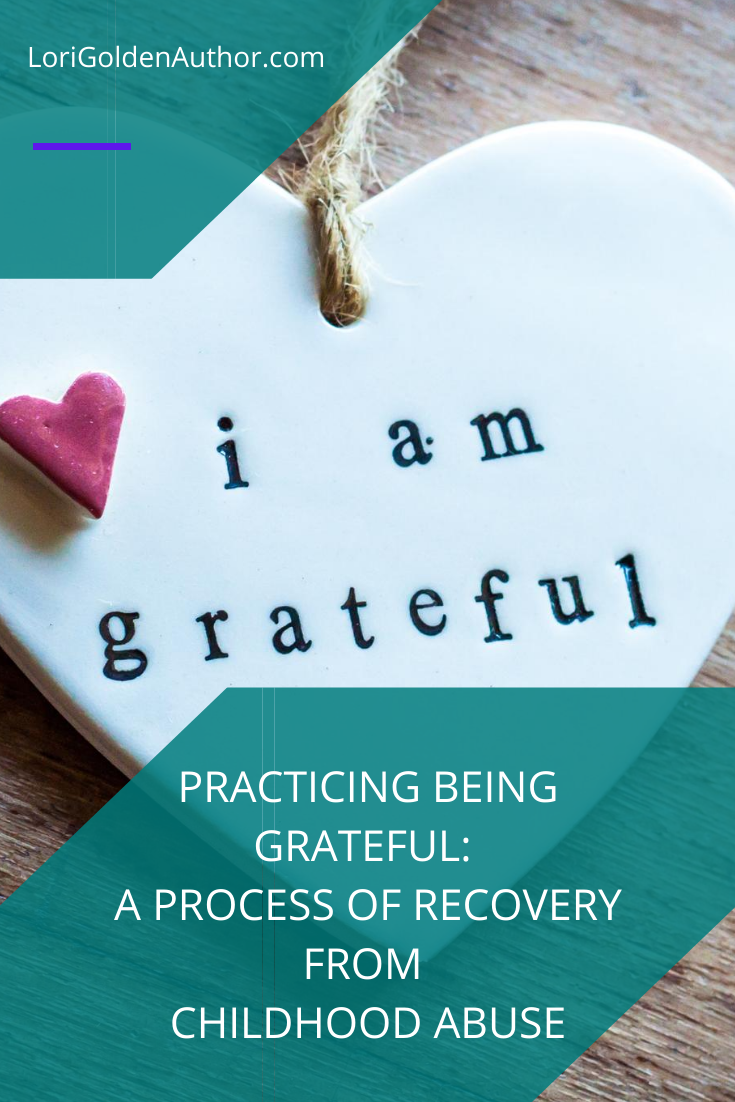I first learned about “being grateful” in Narcotics Anonymous 33 years ago. As a survivor of childhood sexual abuse, these words sounded foreign to me. I learned to suffer at a young age, which became a conditioned way of life, and it was a shadow that followed me into adulthood. In short, I had nothing to be grateful for. It took me two years to become willing to look at my resistance to being grateful because I was afraid to challenge my conditioned belief that I deserved to suffer.
My unwillingness to begin being grateful was wrapped in my need to blame and to punish myself for being sexually abused by my father. This became evident as I began sharing in my Narcotics Anonymous 12 step meetings about my unwillingness to be grateful. I also shared these feelings in my Survivors of Incest Anonymous meetings, which led me to understand that I needed to let go of self-blame and realize my father was to blame, not me. Only then did I become willing to ask myself the question, “What am I grateful for each day?” At first I struggled to believe my answer each time I asked myself this question, but I did not give up. My belief grew as I continued to do this daily practice.
One day I was sitting in my backyard when I asked myself, “What am I grateful for today?” My initial reaction was that nothing came to mind. I took a deep breath, got quiet, and felt the warm sun on my face. I took another deep breath and heard birds chirping and trees rustling. I listened in a way I hadn’t experienced in the past. The sounds and the sun were soothing, and I felt a part of my surroundings. This was not only a significant factor to being grateful, but also a development in my spiritual connection to the universe. I finally felt I was not alone. I truly felt grateful for the sounds of nature.
 This was a turning point for me.
This was a turning point for me.
I learned that being grateful was the difference between a sunny day versus a cloudy one. My attention was drawn to what I did have in my life; it was the difference between living in abundance versus focusing on what was lacking. I also learned that change happened because I was willing to give it attention. I journaled, shared, and set time aside on a regular basis to ask myself that simple question: “What am I grateful for today?”
We only learn a new behavior if we are willing to give it attention and practice it in our lives. It has been shown that being grateful has a powerful effect on our well-being and is a simple practice worth developing. Are you willing to commit to this? I suggest putting a reminder in your phone with the question, “What am I grateful for today?” When you receive the reminder, take a moment to think about your answer. No answer is silly; there is no right or wrong answer, and no judgement is attached to your response.
Gratitude can be found everywhere if you pay attention to your everyday life. These are the responses I discovered during my practice of answering the question, “What am I grateful for today?” I was grateful that I was breathing, grateful to be alive, grateful for friends, grateful for my house, grateful for my recovery, grateful for my willingness to do this practice, grateful for my guard dog who protected me, grateful that the sun was shining, grateful for my memories of incest even though they were painful, and grateful for my health. What I noticed when reviewing my answers was that much of the time, my cup was “half full, not half empty.”
I continue to practice gratitude today regardless of what happens in my life. A recent life event was when I had to unexpectedly say goodbye to my beloved dog and allow him to pass over the rainbow bridge. In my grief, I was able to be grateful for the time I had with him and for the love I gave him as well as received from him. It helped me to value what I have, and for this I am grateful.